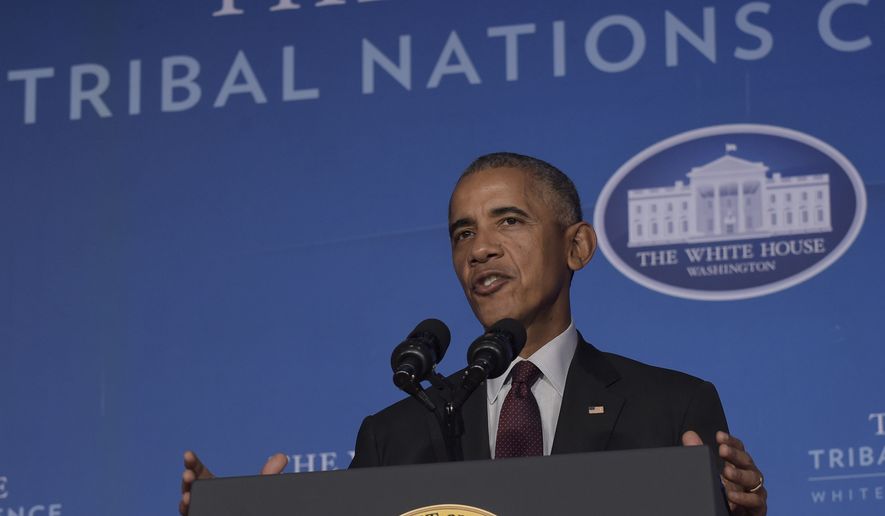OPINION:
Pessimists and cynics are annoying, mostly because events prove them to be right far more often than they are proven wrong. Sometimes pessimism is the necessary result of an examination of history.
Our Pentagon leaders are reportedly readying a request to President Obama to send another 400 or 500 U.S. troops to Iraq. They would join the 4,400 there and be tasked to help the Iraqis retake the city of Mosul from the Islamic State. (According to a Wall Street Journal report, there is an additional force of about 1,500 troops who guard the massive U.S. embassy in Baghdad, some of whom are sent on “special missions.”)
Whatever the troops’ mission, it is painfully obvious that our generals are still stuck on the nation-building strategy that we have pursued in both Iraq and Afghanistan since we invaded those countries in 2001 and 2003. It’s the same strategy that they are following now with the request for more troops to go to Iraq, and it’s just as wrong as it was in 2001.
In his 2000 campaign, George W. Bush said, “I don’t think our troops ought to be used for what’s called nation-building. I think our troops ought to be used to fight and win wars.” But between his campaign and Sept. 11, 2001, he became convinced that the neocon’s nation-building strategy — first in Afghanistan and then in Iraq — could turn those nations into democracies. His often-stated goal was to make Iraq a nation that was able to sustain and defend itself and would be an ally in the global war on terror.
In choosing that strategy Mr. Bush was tragically wrong. Since his presidency began, Mr. Obama has done nothing more than compound Mr. Bush’s mistakes.
The nation-builders started with the examples of Germany and Japan, both of which were rebuilt and became thriving democracies. If we could do it there, why couldn’t we do it in Iraq and Afghanistan?
There are two reasons why it couldn’t be done in either of those nations. First, after World War II, both Germany and Japan were clearly defeated. Their ideologies of Nazism and Shintoism were ground into the dust. Though we drove the Taliban into remote corners of Afghanistan and drove Saddam Hussein’s Baathists from Baghdad, neither admitted defeat. Secondly, and in this case most importantly, their common ideology was never defeated.
What Messrs. Bush and Obama never learned was that whether either nation became a democracy was never relevant to the success of our wars there. If either or both did, it would have been a collateral accomplishment, nothing more.
The center of gravity in this war has always been the Islamic ideology that we have never tried to defeat.
If the president agrees to send more troops to Iraq they may, eventually and at some cost in US lives, help the Iraqis retake Mosul. The only proper question to ask is, what can they accomplish that will last longer than our troops’ presence?
The problem our current generals have today is the same as the ones faced by the generals of 2001 and 2003. Whether those troops stay in Iraq for another 60 days or 60 years, soon after we pull out, those nations will return to what they were before we got there.
Nation-building is, at its heart, a colonialist strategy. If we were to leave hundreds of thousands of troops — and import a few hundred-thousand bureaucrats — we might re-create something like the British Raj of colonial India. But they would have to be there for centuries to keep the peace and maintain some semblance of democracy.
It all comes back to the ideology that is Islam. Islam is an ideology, an integrated system of beliefs on which a form of government is intended to be based. The imams preach that democracy is a rejection of Islam, democracy can never take root in an Islamic society. And they’re right: Islam prohibits the separation of mosque and state. It cannot coexist with democracy.
Donald Trump is comprehensively correct to reject nation-building and the generals whose minds are stuck in it. Even Hillary Clinton is beginning to mouth the words “defeat” and “ideology” in the same sentence.
It was highly amusing to see presidential press secretary Josh Earnest on Fox News on Sept. 19. He said that radical Islam was a failed ideology.
If the chance arises, some reporter should ask him for an example of where the ideology of the Islamists has failed. Iran? Hardly. Iraq, Afghanistan, Syria or Libya? Not so much. It thrives in New York, Florida, Minnesota, California and other states that have suffered terrorist attacks. That ideology can be defeated — it must be — if we are to win the war the terrorists wage against us. But no one has even tried to defeat it in almost 15 years of war.
Al-Hurra television is an Arabic-language network sponsored by the U.S. government that broadcasts into the Middle East. In a 2006 appearance on the al-Hurra, I debated an Iraqi parliamentarian. I argued that there was virtually no chance that Iraq would survive as a nation for long after we departed. He said, as I recall, that as long as the sky was blue and the grass was green, Iraq would be as it was then.
Cassandra wasn’t popular for her warnings of the future. And you don’t have to be the Oracle of Delphi to predict that the next planned surge of troops to Iraq will have no more lasting an effect than the rest of the nation-building in which we’ve invested thousands of lives since 2001.
• Jed Babbin served as a deputy undersecretary of defense in the George H.W. Bush administration. He is a senior fellow of the London Center for Policy Research and the author of five books including “In the Words of Our Enemies.”




Please read our comment policy before commenting.